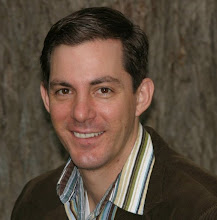Friday, August 18, 2006
Myths of Publishing Part 1
When I started working as an editor just over a year ago, I began to learn about the strange world of publication. In this series, I'll be your inside man on books. I'll get you the hook-up, the scoop, the hush-hush, the low-down. This is part one of a five or six part series where you'll learn the real deal.
Also, I'm trying to use technorati tags for the first time.
MYTH ONE: THE MYTH OF THE AUTHOR
"What?!" you say. "But authors are like gods. They create a universe and inhabit it with people and weave the tapestry of their fates."
Just stop, okay? It isn’t that simple. Sure, authors have a tremendous role in the creation of their book, but they are hardly like gods creating in a vacuum. They receive all kinds of help from agents and editors and publishers and even ghostwriters.
Read the Acknowledgements page. Those people wrote the book together. You've seen movies written and directed by the same guy, right? Authors are like that. The vision is theirs, sure. But a whole crew of people brought the work to life.
There may be a few exceptions. Authors who disappear into a cabin somewhere and come out with a book that just needs to be retyped at the publisher. But I've never seen one of these monsters.
A word about ghostwriters . . .
Have you ever seen a book by two people? The name you don’t know is probably the person who wrote the book. The ghostwriter. Often, a ghost will interview the author for ideas and vision and sequencing, then get to work on a draft. These collaborative efforts are usually acknowledged with a double byline.
But the law doesn’t require a ghostwriter to be acknowledged at all. If “authors” want full credit, they can buy it. Hilary Clinton bought her ghost’s silence for $120,000. Does that make her an author? What do you think?
And why does this matter?
Other than acknowledging the ethical slipperiness of this wide-spread practice, it matters for people who want to write. Aspiring writers need to understand that their work is a draft. Their ideas and their style are not holy creations. A book is a product that other people will help them refine.
If they don’t want other people to chop up their sentences and change their endings, they should self-publish.
HillCountryWriter Category: Publishing
Technorati Tags: publishing books editing writing
Also, I'm trying to use technorati tags for the first time.
MYTH ONE: THE MYTH OF THE AUTHOR
"What?!" you say. "But authors are like gods. They create a universe and inhabit it with people and weave the tapestry of their fates."
Just stop, okay? It isn’t that simple. Sure, authors have a tremendous role in the creation of their book, but they are hardly like gods creating in a vacuum. They receive all kinds of help from agents and editors and publishers and even ghostwriters.
Read the Acknowledgements page. Those people wrote the book together. You've seen movies written and directed by the same guy, right? Authors are like that. The vision is theirs, sure. But a whole crew of people brought the work to life.
There may be a few exceptions. Authors who disappear into a cabin somewhere and come out with a book that just needs to be retyped at the publisher. But I've never seen one of these monsters.
A word about ghostwriters . . .
Have you ever seen a book by two people? The name you don’t know is probably the person who wrote the book. The ghostwriter. Often, a ghost will interview the author for ideas and vision and sequencing, then get to work on a draft. These collaborative efforts are usually acknowledged with a double byline.
But the law doesn’t require a ghostwriter to be acknowledged at all. If “authors” want full credit, they can buy it. Hilary Clinton bought her ghost’s silence for $120,000. Does that make her an author? What do you think?
And why does this matter?
Other than acknowledging the ethical slipperiness of this wide-spread practice, it matters for people who want to write. Aspiring writers need to understand that their work is a draft. Their ideas and their style are not holy creations. A book is a product that other people will help them refine.
If they don’t want other people to chop up their sentences and change their endings, they should self-publish.
HillCountryWriter Category: Publishing
Technorati Tags: publishing books editing writing

